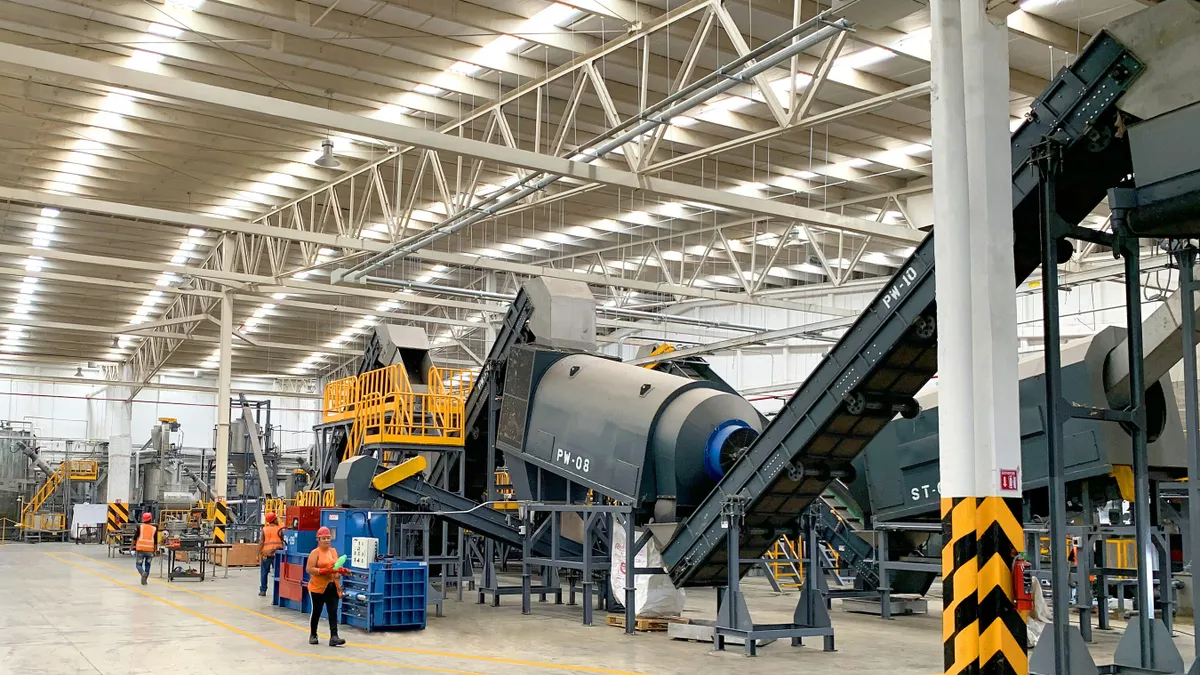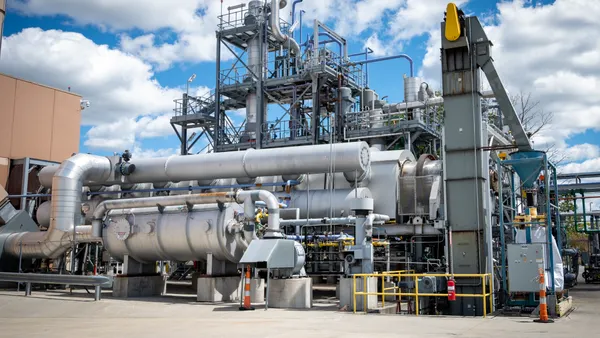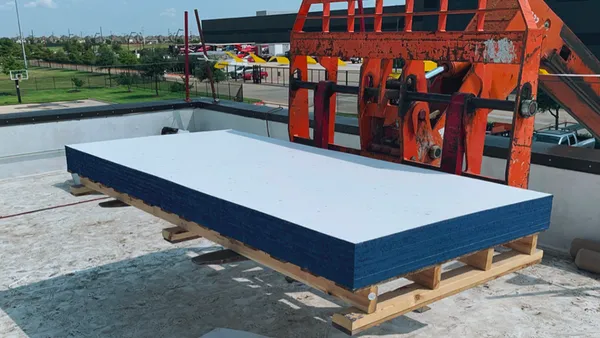Dive Brief:
- The Recycling Partnership recently awarded Direct Pack, a manufacturer and recycler of thermoformed PET packaging, a grant supporting construction of a PET reclamation operation in Mexicali, Mexico, that will source material from U.S. MRFs to produce recycled content for new packaging.
- Phoenix also recently touted its relationship with Direct Pack, part of sustainability messages around its upcoming hosting of the Super Bowl. Phoenix sent all 4,050 tons of its PET to Direct Pack last year.
- This past year, The Recycling Partnership launched the PET Recycling Coalition — an initiative whose members and advisors include Eastman, P&G, Coca-Cola and the National Association for PET Container Resources — which aims to increase the recycling rate of PET packaging. The coalition expects to announce three additional rounds of grants to multiple grantees throughout 2023.
Dive Insight:
Estimates in recent years suggest that only about 9% of PET thermoform packaging — rigid No. 1 plastic items like clamshells, cups and tubs — gets recycled. Some North American PET reclaimers accept thermoforms. PET bottles continue to have a higher recycling rate than other PET packaging.
Thermoform recyclers, including Global PET and Green Impact Plastics, are a growing segment of the recycling industry, according to a Recycling Partnership spokesperson.
Over the last two years, California-based Direct Pack has reclaimed more than 8,000 tons of recycled PET plastic from working with the city of Phoenix and other MRFs in the region, the company stated in a Feb. 1 press release.
Phoenix’s PET is processed in Mexicali for use in production of new food packaging, according to the Jan. 27 Phoenix press release, which added that the partnership diverts 21 million pieces of thermoformed packaging from the landfill annually. Mexicali is about 250 miles from Phoenix.
"With our newest recycling and recovery facility located only a few hours away from Phoenix, we can trace and recover all PET plastic collected in the area with a very low carbon footprint,” said Direct Pack President Craig Snedden in a statement. “This transparency is important, so you know that what you put in the recycling bin actually gets recycled and reused. The packaging you put in the recycling bin today can come back as your sandwich or berry packaging a month from now.”
Direct Pack’s project in Mexicali is its second PET reclamation facility in the area, which the company expects will produce an additional 15,000 tons of recycled content for new packaging. A spokesperson said this second facility will have “significant added space for PET bale storage,” as well as new equipment on the wash line that was developed by the company and will be used in its other facilities. Construction of the new facility is said to be “near complete” and testing is underway.
Snedden added in Direct Pack’s press release that the grant money allows the company “to scale our recycling operations more quickly, and take in even more PET plastic from MRFs, keeping it out of landfills.” The company declined to share what other MRF sources are currently sending it material.
Jan Dell, an independent engineer and founder of the nonprofit The Last Beach Cleanup, criticized the export of plastic waste to Mexico and the construction of a water-intensive operation in a water-scarce region. That stance was also later shared by environmental advocacy groups in the region who called on major companies to rethink plastic production.
"They cannot continue to flood our cities with plastics designed to be thrown away, which only contribute to the pollution of ecosystems,” said Ornela Garelli, Greenpeace Mexico's Oceans Without Plastics campaigner, in a statement. “We demand that instead of betting on disposable packaging and containers, they should advance in the design of new ways of distributing their products that are reusable and do not generate waste.”
When asked whether Phoenix has done any lifecycle analyses to determine whether sending PET to the Mexicali facility is the most sustainable option, a public works spokesperson said the city has not.
“Phoenix is very focused on creating a circular economy and Direct Pack embodies that goal with their local and circular approach to processing PET plastics,” said Senior Public Information Officer Spencer Blake in an email.
In The Recycling Partnership’s recent grants round, DAK Americas and Recycle Source also received grants toward sorting technologies for PET thermoforms. The grants were an average of $250,000 each, a Recycling Partnership spokesperson said.
This story has been updated to include a statement from Greenpeace, which was previously unavailable for comment.
Interested in more packaging news? Packaging Dive is launching March 27. Sign up today.











